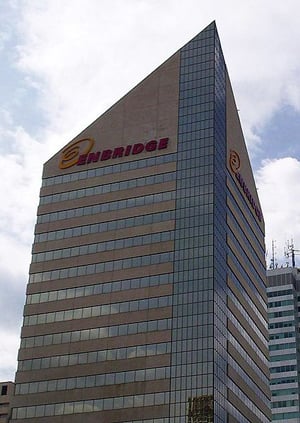
Enbridge's multi-million dollar advertising campaign praising the Northern Gateway pipeline project is sweeping through British Columbia. Animated pastel dream sequences promise economic prosperity, thousands of jobs, world-class safety standards, low environmental impact, and kids who know how to jump rope.
Vast economic gain with minimal risk sounds wonderful, but when you look deeper, there's quite a different story.
Few jobs for a short time
Enbridge's job claims are suspect. In their ads the company says Northern Gateway creates "3,000 construction jobs at the peak of construction." But in their report, the peak of construction is a three month period in the third year of a five year project and they aren't jobs -- they are person years of employment. A more accurate claim, using Enbridge's published data, would be 1,000 construction jobs.
Even then, Enbridge has indicated PetroChina -- probably using the Temporary Foreign Workers Program which allows imported workers to be paid 15 per cent less than Canadians -- would "love" to build the pipeline.
Your bills will rise
For almost two years Canadians were led to believe the economic benefit from Northern Gateway would arise from higher prices paid in Asia for crude oil shipped along the pipeline. What we weren't told is that these higher prices would be passed onto Canadians. When I filed my critique of Enbridge's benefits case with the National Energy Board Review Panel earlier this year, the company confirmed this is the intent of the project.
Consumers and businesses faced with limited budgets must adjust to higher oil prices. This impacts economic activity in other areas. Spending and investment declines -- downsizing and layoffs result. None of the negative impact of higher oil prices have been built into Enbridge's rosy scenario.
History of failed monitoring
The ads also tell us Enbridge has "World-class safety standards... the pipeline will be monitored 24/7."
On July 25, 2010 in Marshall, Michigan, Enbridge's Line 6B ruptured releasing more than 20,000 barrels of dilbit. Dilbit is a mixture of heavy oil sands crude called bitumen mixed with a toxic diluent which enables it to flow through a pipeline. This is the oil planned for the Northern Gateway pipeline.
In Michigan, as diluent evaporated into the air affecting the local community, remaining bitumen made its way into the Kalamazoo River. Enbridge's corporate standard for identifying a spill is 10 minutes with an additional three minutes for pipeline shutdown. It took more than 17 hours for the Kalamazoo spill to be detected and the pipeline shut down. Line 6B was monitored "24/7."
Pat Daniel, CEO of Enbridge testified before the U.S. House of Representatives in Sept. 2010. He promised "by the end of September we will have completed the bulk of the clean up." It took 23 months and $765 million for the Kalamazoo River to re-open to the public.
The U.S. National Transportation Safety Board has released documents which provide an arms length, independent look at Enbridge's world-class safety standards. They explain operating safety took a back seat to corporate growth.
Enbridge senior V.P. operations, Leon Zupan, stated in recorded testimony, "we had focused on the need and the growth of a new control center... what we had not yet implemented was the resources to get us there... our view of the night of the Marshall incident was that we had people that were really trying hard to do what they thought was the right thing, but they needed more technical support, they needed more management support, they needed more technical training, and they needed to be clear about what our expectations were in terms of following procedure..."
Led down the path
On June 18, 2012 Enbridge's Athabasca pipeline north of Edmonton leaked 1,500 barrels of crude oil. Northern Gateway will cross more than 700 vulnerable waterways along its route through Northern B.C. It won't take a Kalamazoo spill to compromise B.C.'s watersheds. According to toxicologist reports, a spill upstream in the Kitimat River -- half the size of the one in Alberta -- should do it.
Enbridge hopes to counter B.C.'s growing opposition to Northern Gateway with a slick campaign and a smooth tag line -- "It's more than a pipeline, it's a path to our future."
Some path, some future. ![]()
Read more: Energy, Environment














Tyee Commenting Guidelines
Comments that violate guidelines risk being deleted, and violations may result in a temporary or permanent user ban. Maintain the spirit of good conversation to stay in the discussion.
*Please note The Tyee is not a forum for spreading misinformation about COVID-19, denying its existence or minimizing its risk to public health.
Do:
Do not: